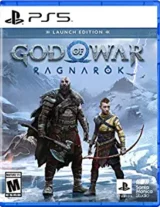PlayStation has patented Death Stranding’s online path-building features
The game’s unique collaborative environment-changing idea has been protected by Sony

Sony Interactive Entertainment has successfully patented the path-building mechanic featured in Death Stranding.
The patent, which was filed four months before the game originally released on PS4 and was just granted on Tuesday, is named “terrain radar and gradual building of a route in a virtual environment of a video game”.
It protects one of the game’s more interesting features, in that paths can be improved depending on how many players have previously used them.
The patent refers to “improving the first path based on a number of times the first path has been traversed by […] one or more characters”.
This appears to describe similar features seen in Death Stranding, where players can make paths, build bridges and leave items for other players who will visit the same areas in the future, even though each player’s game is a separate experience.
Now that the patent has been granted, this could make it difficult for other developers to use similar systems in their own games without Sony taking legal action.
This isn’t the first time a publisher has patent a gameplay mechanic. Warner Bros. Interactive received criticism from some developers earlier this year after it succeeded in patenting Middle-Earth: Shadow of Mordor’s Nemesis System.
The patent covers a system featuring procedurally-generated NPCs that exist in a hierarchy and interact with and will remember the actions of players. Any such system is now effectively the property of Warner Bros. Games.

Mike Bithell, the designer behind Thomas Was Alone and John Wick Hex, was one developer who criticised the news on social media.
“This is really gross, especially for a franchise that built its brilliant nemesis system on top of a whole heap of mechanics replicated from other games,” he wrote. “As all games do. Because that’s how culture and creativity works. Be a better neighbour, WB.”
In August, Electronic Arts decided to share five of its previously protected patents that improve accessibility for players.
In a statement on the official EA site, the publisher announced a ‘patent pledge’ that lets any other game developer use five of its patents (with potentially more to follow) without having to pay any money or risk being sued.















